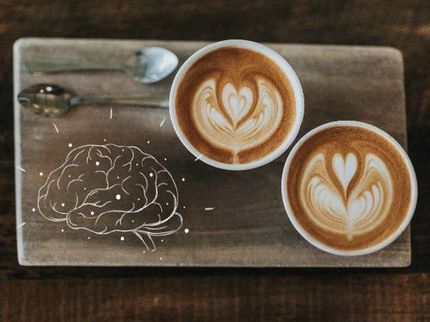Even the thought of coffee provides for an energy kick in the morning
Advertisement
Before the first cup of coffee, many people are still not really approachable in the morning. But already the smell of the freshly brewed energy supplier awakens the senses and lets the brain start working. But why is that? Scientists at Monash University in Melbourne and the University of Toronto have now discovered that even the mere thought of coffee can lead to an intense placebo effect among coffee lovers without actually consuming the hot drink.

Coffee, symbol image
acekreations, pixabay.com, CC0
For many, every day begins with a hot cup of coffee to activate the brain for the working day. The morning coffee promotes interpersonal encounters, provides for the physical well-being and represents a particular ritual for some connoisseurs.
But can coffee fans achieve the same positive effects as morning milk coffee by merely reacting to stimuli that remind them of coffee - such as smells, visual impressions and sounds?
A recent international study by Monash University and the University of Toronto has shown that the placebo effect of coffee can make regular coffee drinkers feel stimulated, ambitious and concentrated without actually consuming the drink.
Dr. Eugene Chan, lecturer in marketing at Monash Business School, and Sam Maglio, professor of marketing and psychology at the University of Toronto, have investigated the relationship between coffee and the state of arousal of the central nervous system in order to find out whether the perception of stimuli can bring the same cognitive benefits as a caffeine kick.
"As long as people associate coffee with a state of excitement, no matter where this association comes from, the perception of sensory stimuli reminiscent of coffee can stimulate the central nervous system without consuming any form of caffeine," says Dr Chan.
"The mere scent of coffee then evokes the psychoactive, stimulating effects of the hot drink. This is because the brains of regular coffee consumers are conditioned to react to coffee in a certain way, just as the well-known phenomenon of the Pavlovian dog describes it.
Thus, even walking past our favourite café, the smell of coffee grounds or the perception of stimuli in the form of coffee advertisements can trigger the chemical receptors in our bodies to such an extent that we can achieve the same states of excitement without actually consuming coffee".
The researchers exposed 871 study participants from Western and Eastern cultures to coffee and tea-related stimuli in four different experiments, which made them think of the drink without actually consuming it.
In an experiment, the participants were asked to develop advertising slogans for coffee or tea. In another, they should invent reports about the health benefits of coffee or tea consumption. Throughout the study, the scientists monitored the excitation levels and heart rates of the participants.
The study focused on a psychological effect called 'mental abstraction'. Mental abstraction determines how people think and process information, and whether they concentrate on smaller details or the overall picture.
The results of the study show that the perception of coffee stimuli, i.e. images, smells and noises that make you think of coffee, can increase people's attention, energy and heart rate and improve their cognitive performance.
The cognitive-changing effect of coffee was more widespread among participants from Western countries, where coffee is more popular than in Eastern countries and is associated with energy, concentration and ambition. Coffee is also said to have a more significant stimulating effect than tea.
























































